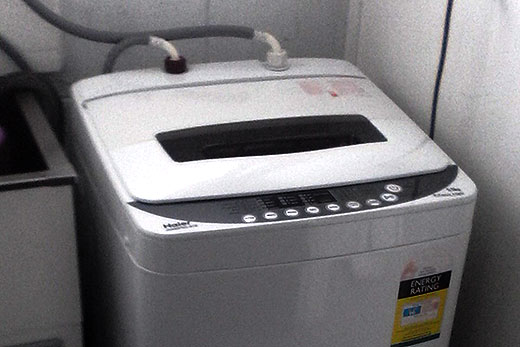With New Zealanders turning to secondhand markets to tackle rising living costs and contribute to environmental sustainability, Consumer's guide provides essential tips to navigate the secondhand market with confidence.
Recent Consumer data reveals that 87% of New Zealanders have bought secondhand items in the last 6 months, up from 76% just 5 years ago.
Economic pressures are driving this growing trend, with a notable increase in secondhand purchases of electronics and household appliances.
At the same time, a growing awareness of environmental impacts has encouraged 21% of New Zealanders to consider sustainability when making purchases.
Your trusted guide to buying second hand appliances
Consumer’s new guide includes expert advice on what to look for when buying secondhand, with tips for ensuring quality, reliability and value.
As many New Zealanders seek to balance affordability, durability and sustainability, the guide highlights how to identify high-performing, long-lasting appliances and avoid common pitfalls, such as faulty or poorly maintained products.
“We know that the rising cost of living has made people more conscious of how they spend their money, and secondhand shopping is an appealing option,” said James le Page, Consumer’s Product Test Manager.
“Our new guide helps New Zealanders navigate this growing market by providing essential information about product quality, lifespan and potential risks.
“With the consumer landscape shifting, not every purchase is made from the shop floor but rather often from online platforms, and we want to instil people with more trust and guard-rails to work with when they are making those often tricky purchasing decisions.”
Top tips for buying secondhand appliances
When purchasing secondhand appliances, it’s important to do your homework.
Consumer’s guide covers several key factors.
Reliability and satisfaction
- Look for trusted brands with high satisfaction ratings.
- Check the model’s reliability and past performance through our comprehensive product reviews and test results.
Condition and care
- Assess the condition of the appliance. If it looks worn out or poorly maintained, this could be a sign of a rough life.
- Ask the seller about its history and always test the product before buying.
Repairability
- Ensure spare parts are available or the manufacturer still supports the product’s software (if applicable). This can prevent future headaches and unexpected expenses.
Energy efficiency
- Consider the appliance’s energy efficiency. Older models may have higher running costs compared with newer, more energy-efficient options.
Check for recalls
- Check the New Zealand Product Safety website before purchasing to make sure the product hasn’t been recalled.
Sustainability and quality
- The shift to secondhand shopping isn’t just about saving money – it’s also a key driver of sustainability. By purchasing secondhand, consumers can reduce waste, save energy and lower their carbon footprint.
- For many people, buying secondhand is a way to make more environmentally conscious decisions while still getting a good deal.
- Currently 21% of New Zealanders believe buying secondhand products is better for the environment, and this movement is gaining momentum.
A guide to older models
- Consumer is making it easier for people to compare new and older models of appliances.
- We are adding previously tested appliances to our comparison pages, making it easier for consumers to make informed decisions about whether to buy new or opt for a high-performing secondhand option.
- Our guide includes historical product tests, helping consumers find great deals on older models without sacrificing quality.
How old is too old
- While purchasing secondhand can be a great way to save, it’s important to know how old the appliance is before you buy.
- For large items, like washing machines, dryers and fridges, up to 8–10 years is usually acceptable.
- For electronics, like laptops or phones, look for models that are 3–5 years old to ensure ongoing viability.
- However, some items may be built to last and remain in excellent condition for even longer than our rule-of-thumb suggested timeframes.
Your rights when buying secondhand
- Consumers are still protected under the Consumer Guarantees Act when buying from secondhand dealers.
- However, this protection doesn’t apply to private sales, so it’s important to understand your rights before making a purchase.
Start your secondhand appliance search by exploring the full secondhand buying guide on Consumer's website.



0 comments
Leave a Comment
You must be logged in to make a comment.